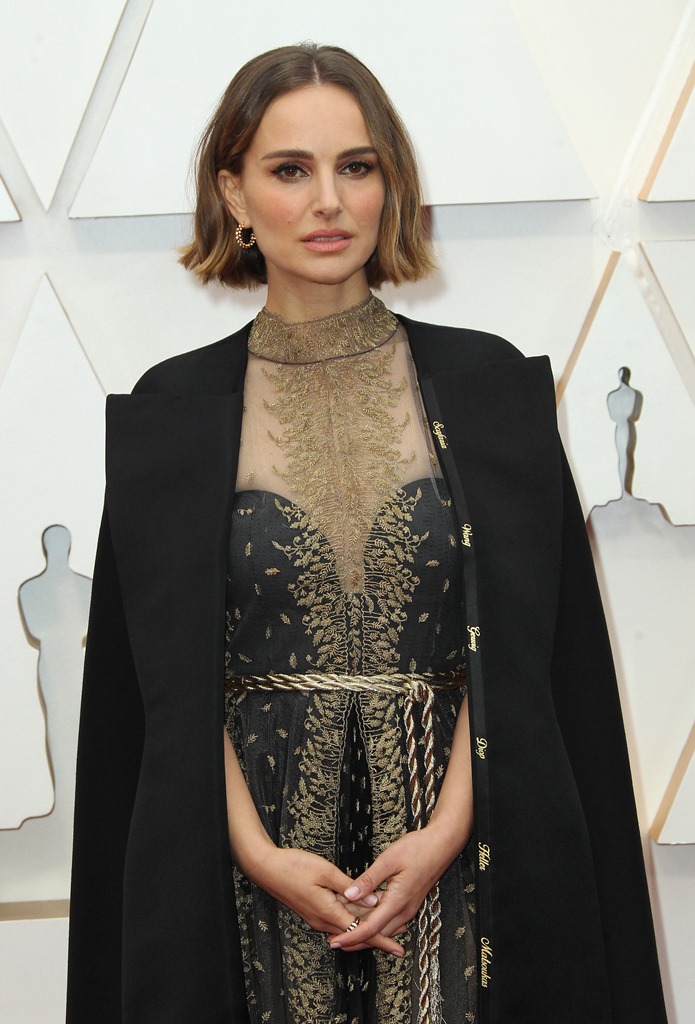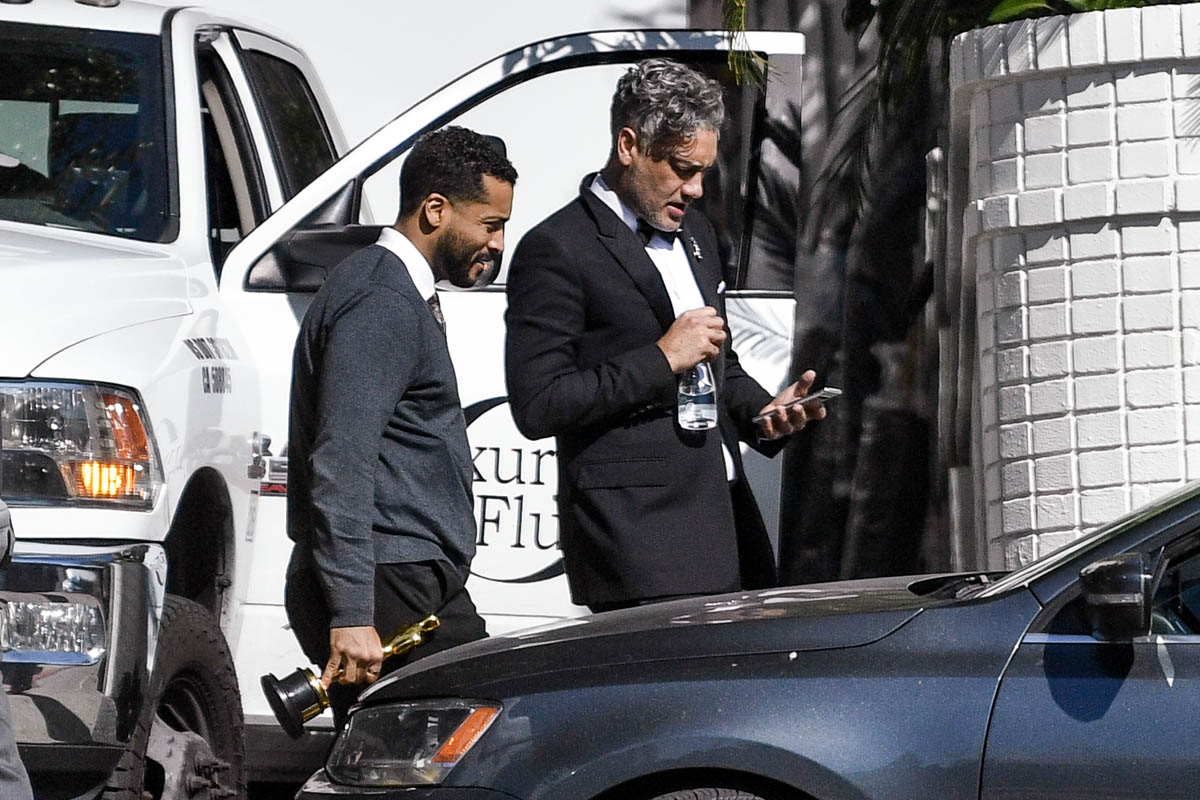Natalie Portman responds to criticism



We’ve been talking about Natalie Portman’s Oscar dress for four days now, and not necessarily in the way she intended it to be talked about. Duana wrote about it on Monday after the Oscars and appreciated the effort. Maria mentioned the controversy yesterday in Celebrity Social Media as many people, including Rose McGowan, questioned Natalie’s actual support of female directors. Natalie has now commented on the criticism in a statement released yesterday. Per Variety:
“I agree with Ms. McGowan that it is inaccurate to call me ‘brave’ for wearing a garment with women’s names on it,” Portman said. “Brave is a term I more strongly associate with actions like those of the women who have been testifying against Harvey Weinstein the last few weeks, under incredible pressure.”
Portman went on to state that she hoped that the industry would begin to offer more opportunities for women to direct movies.
“The past few years have seen a blossoming of directing opportunities for women due to the collective efforts of many people who have been calling out the system,” Portman said. “The gift has been these incredible films. I hope that what was intended as a simple nod to them does not distract from their great achievements. It is true I’ve only made a few films with women. In my long career, I’ve only gotten the chance to work with female directors a few times – I’ve made shorts, commercials, music videos and features with Marya Cohen, Mira Nair, Rebecca Zlotowski, Anna Rose Holmer, Sofia Coppola, Shirin Neshat and myself. Unfortunately, the unmade films I have tried to make are a ghost history.”
Portman went on to cite studies from Stacy Smith of USC, who has chronicled the lack of studio movies made by women, to claim that films from female filmmakers have a harder time getting greenlit or financed.
“If these films do get made, women face enormous challenges during the making of them. I have had the experience a few times of helping get female directors hired on projects which they were then forced out of because of the conditions they faced at work,” Portman said. “After they are made, female-directed films face difficulty getting into festivals, getting distribution and getting accolades because of the gatekeepers at every level. So I want to say, I have tried, and I will keep trying. While I have not yet been successful, I am hopeful that we are stepping into a new day.”
What she’s saying is on the record – she has tried to make films that ended up falling through. Marielle Heller, who directed A Beautiful Day in the Neighbourhood, one of the films overlooked this past award season, has weighed in on this too:
🍒 There’s a lot of backlash re: Natalie Portman’s Oscar cape, but sharing this note we received from Director Marielle Heller: pic.twitter.com/vpaFOnBEs8— CherryPicks (@TheCherryPicks) February 12, 2020
And, again, there are other examples of her “ghost history” that are cited underneath that tweet. So, yes, she has tried.
BUT HOW HARD HAS SHE TRIED!?!
Are we going to do accounting on this? Like an Olympics of Effort? Because if that’s the game, I don’t know that she should be the leadoff batter. The more helpful conversation might be the one that presents itself in the “ghost history”. Yes, she’s been in a lot of movies with male directors – and the fact that she’s had several with female directors not happen IS actually the problem she’s trying to illuminate. Why is it harder? What can be done to make it not so hard? If even Natalie Portman, with all her success, can’t get films made when she wants to work with female directors, how much more challenging must it be for others who don’t have her power and profile?
And also, doesn’t it count that she’s actually out there consistently making it her message? Two years ago, she was the one who, while presenting at the Golden Globes, standing next to a male director, facing the male directors who were nominated, some of whom might be in a position to put her in their sure-to-have-a-better-chance-at-getting-made projects, called out the lack of female representation. No, that’s not “brave” either, but she is speaking, using her voice. My point is that I’m not sure what this accomplishes, getting mad at Natalie Portman, when she’s actually talking about it, and opening herself up to this kind of forensics, when sitting in the same f-cking room is Leonardo DiCaprio who hasn’t worked with a female director since 1995 so, like, before Titanic, and before he accumulated the capital he has in the industry. But mentioning Leo is “what-aboutism”, and that’s not helpful either. So where does that leave us?
Well, in this case, I just don’t want to dump on someone who’s actually saying she didn’t always get it but that she wants to do better.
